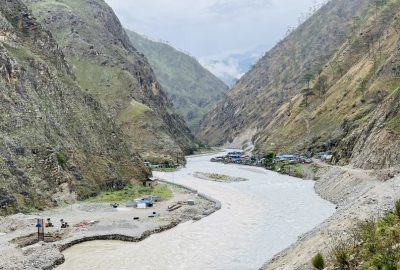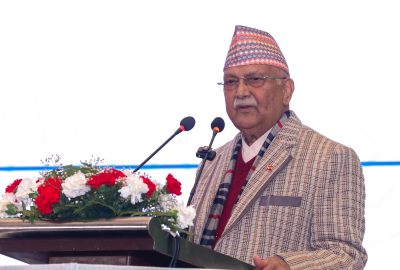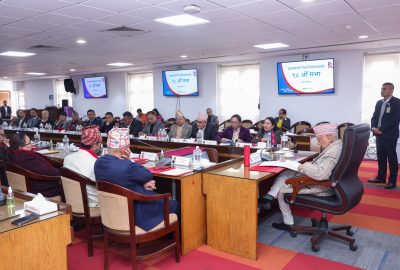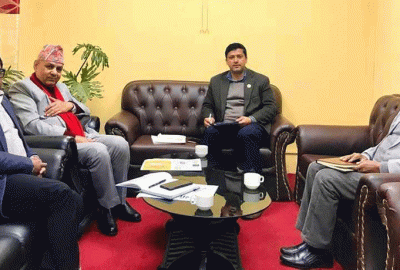CRN-2023: 71.7 percent perceive political leaders’ roles in corruption

Kathmandu: Unorganized, and weak political parties and leaders are blamed for rising corruption in Nepal.
According to a report entitled ‘Corruption Reflection Nepal, 2023’ unveiled by the Alternative Foundation here on Saturday, corruption prevails in several forms in Nepal and the main forms are bribery, embezzlement, fraud, and extortion and abuse of power, nepotism, and favoritism are deeply rooted in Nepalese culture, back-supporting corruption.
According to the findings of the study, the major sources of corruption are traditional politics and working styles, nepotism and familialism, greed and getting rich quickly, policy loopholes, money-minded bureaucracy and authorities, delayed justice, unfair political appointments, abuse of the rule of law, cultural effects, etc. are the other sources of corruption.
Similarly, grand political and bureaucratic corruption is being propped up in Nepal. Almost all sectors: the public, political, and private sectors, have been infected by corruption. “Corruption negatively impacts a good governance system and jeopardizes transparency and accountability.” The report has been divided into two sections: ‘politics and corruption’ and the ‘government and corruption’.
During the survey that includes 1,000 respondents, most of the respondents perceived that political parties do not implement their election manifestos. They expressed discontent with the working style of political parties and the behavior of political leaders. Citizens have a strong perception that political parties and leaders are involved in corruption and also in the protection of crimes in society.
It shows that 71.2 percent citizens think election manifesto of political parties is not implemented while 79.2 percent are not satisfied with the ways of political parties work and 71.0 percent citizens think behavour of political leaders is not good.
Likewise 71.7 percent citizens assume political leaders are involved in corruption while 63.37 percent believe that political parties are involved in corruption, 70.8 percent perceives political parties and leaders protect crime in the society while 89.1 percent citizens think there is need of transformation in political parties.
Citizens perceive that the government’s efforts to control corruption are not adequate. Most of the citizens are unaware of the CIAA’s activities. Among the government intuitions and others, citizens perceived the highest level of corruption in government officials and the lowest corruption in bank employees.
Survey coordinator Dr Janakraj Shah said the document would help make the government aware of public voices regarding the perceived status of corruption.
Popular posts
- Fresh tender issued for Jagadulla Hydropower Project
- Production of fish, milk up in Madhes Province
- Not to worry about energy consumption, PM Oli reassures power producers
- Four-year dispute between KU, Dhulikel Hospital settled
- Main parties agreed to forward bills in parliament through common understanding



